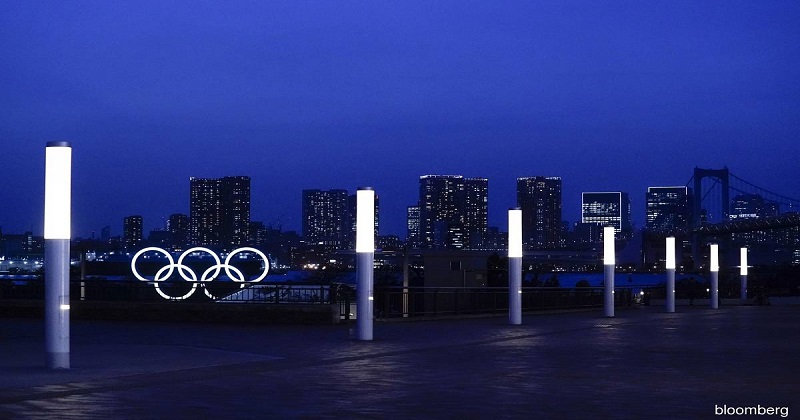
Tokyo: In an announcement ending months of speculation, Tokyo’s Olympics organizers said on Monday that events will be allowed to be watched by 10,000 domestic fans. The decision has come against the recommendation of medical experts who believe excluding fans is the least risky option.
A decision was widely expected following some recent comments from organizers and after the government’s own experts last week appeared resigned to the event going ahead with fans. Although Japan has been spared many of the catastrophic coronavirus outbreaks that have devastated other countries, the vaccine rollout was initially slow and the medical system was strained to the limit in some areas. ‘The Games, set for July 23, will have a limit of half of the venue capacity, up to a maximum of 10,000 people’, organizers announced in a statement.

Cheering, whether on behalf of a victory or of an underdog, will probably be curtailed with a ban on shouting. Masks would also be required, and spectators were advised to travel directly to venues and return directly to their homes. According to organizers, numbers may drop further after July 12 depending on the extension of ‘quasi emergency’ COVID-19 measures, which expire the day before, or any other anti-infection measures in place at the time.
The entry of foreign spectators is already prohibited. Built-in 1964 for the Tokyo Olympics, the national stadium, originally supposed to hold 68,000 fans, will now only accommodate approximately half of that number. However, television deals, such as the 17 nights of prime time broadcast by NBC Universal, will be able to televise the Games around the world. President Seiko Hashimoto of Tokyo 2020 said organizers have not decided yet whether to serve alcohol on event sites. Despite the concerns of health experts, Hashimoto had previously said she was considering allowing up to 10,000 fans. On Friday, some of the country’s top health experts said banning spectators would be the least-risky option.
Haruka Sakamoto, a physician, and researcher at Keio University, told Reuters that she is not only concerned about the increase in tourists to watch the Olympics but also about people’s sense of urgency being loosened by the addition of spectators. Polls conducted by broadcaster Asahi News Network found 65% of the public is in favor of replacing the event or canceling it. Over 70% of respondents thought the Games would not be held safely and securely, the survey showed. Events with spectators have already taken place in Japan. On Sunday, 7,600 people attended a Yakult Swallows pro baseball game in Tokyo.
‘Spectators will come from all directions and enter the stadium, possibly resulting in a crowd and clusters,’ said 48-year-old IT worker Masahiro Gomi. Tokyo 2020 CEO Toshiro Muto told a briefing that ticket revenues are likely to fall more than half from an earlier expected 90 billion yen ($817.14 million).’Tokyo and the national governments should discuss how to make up the shortfall,’ he said.
In the beginning, organizers sold 44.8 million tickets and the government had expected a tourist boom. As a result, 840,000 tickets have since been refunded, but the cap could slash the final total to 2.72 million tickets, Muto said. Kiuchi states that limiting a number of fans at both games would reduce the economic impact by about 5%.
Read more: ‘Shielded’ China from scrutiny: US Senator criticizes Fauci’s dismissal of COVID-19 leak theory
The announcement followed five-way talks among Tokyo 2020 organisers, the government of Japan, the government of Tokyo, and the international Olympic and Paralympic committees. The IOC Chief Thomas Bach reported that the vaccination rate for athletes and officials living in the Olympic village has surpassed expectations. Japanese Prime Minister Yoshihide Suga said he would not rule out not holding the Olympics in case an emergency is declared for COVID-19.
As a result of a state of emergency, spectators cannot be excluded, he told reporters during a tour of vaccination sites in Tokyo on Monday. Last week, Suga lifted the state of emergency for Tokyo and eight other prefectures affected by the outbreak.

Post Your Comments